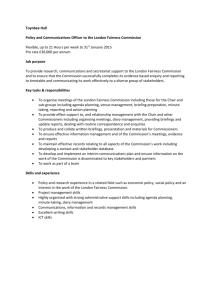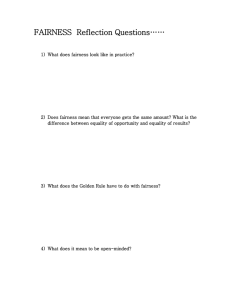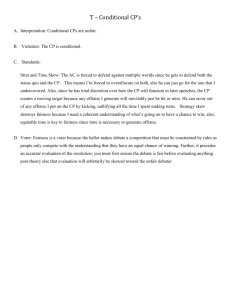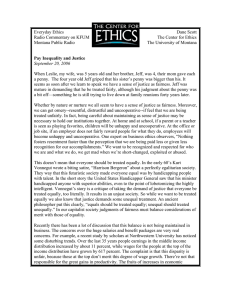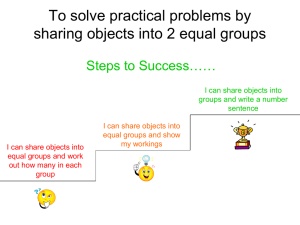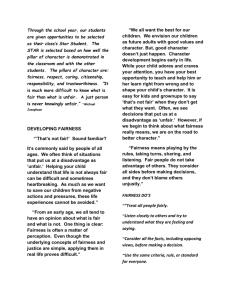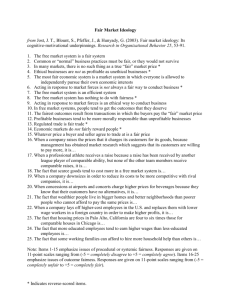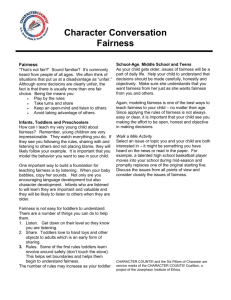Justice of Fairness Approach
advertisement
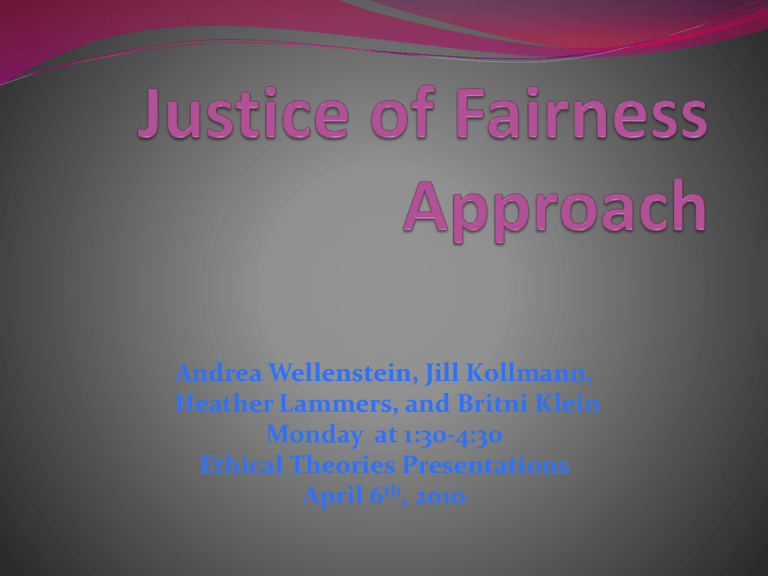
Andrea Wellenstein, Jill Kollmann, Heather Lammers, and Britni Klein Monday at 1:30-4:30 Ethical Theories Presentations April 6th, 2010 Justice: Is the concept of moral rightness based on ethics, rationality, law, natural law, religion, fairness or equity. Fairness: Free from bias, dishonesty, or injustice; a fair decision, a fair judge. What does treating people fairly mean? Does fairness mean everyone gets the same amount, like an equal piece of a chocolate bar? Do onto others as you would want done onto you. Fair and unfair actions distribute benefits and burdens Fairness requires consistency in the way people are treated. Benefits and burdens are based on personal: Needs Desires Contributions Equality for all Author of A Theory of Justice, Political Liberalism and The Law of People John Rawls General Conception All social primary goods - liberty and opportunity, income and wealth, and the bases of self-respect are to be distributed equally unless an unequal distribution of any or all of these goods is to the advantage of the least favored. http://www.youtube.com/watch?v=P4apqBH-f9A Born 384 BC- 322 BC Roughly at the age 61- 62 “ equals should be treated equally and unequal's unequally.” The basic moral questions in Aristotle’s approach is: How fair is an action? Does it treat everyone in the same way, or does it show favoritism and discrimination? …Criticisms… How does one individual justify what is fair and just for all individuals? Culture Religion Society Community Education According to the United Network for Organ Sharing there were 92,722 people waiting for organ transplants in August 2006, but only 6,126 people had donated organs between January and May of 2006. How do we distribute 6,126 organs among 92,722 people? This is a question for justice. A person's good is that which is needed for the successful execution of a rational long-term plan of life given reasonably favorable circumstances. Liberty Opportunity Income Wealth Self-respect Beatrice Norton started working at a cotton mill at age 14. She had to stop working, due to having “brown lung”. The company that she worked for was not going to help her with the chronic and sometimes fatal disease she suffered from sue to the poor work conditions. She asked the state legislators to provide her with compensation for the disability. Her request was denied. Fairness/Justice Approach says that people need to be treated equally. If they cannot be treated equally they need to be treated properly based on some criteria. This means that the communities or people effected by your decisions cannot be favored or benefit from an unfair advantage. I. Is everyone being treated equally? II. What is fair and/or unfair to different people? III. What are the standards used to make decisions?
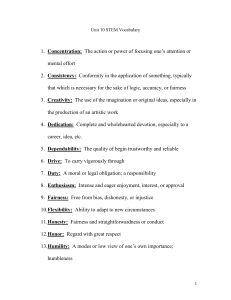
![From: GARY BURGER [ ] Sent: Saturday, February 19, 2005 1:18 PM To:](http://s2.studylib.net/store/data/015586034_1-7c33310e5e907106251e2237a446e51b-300x300.png)
